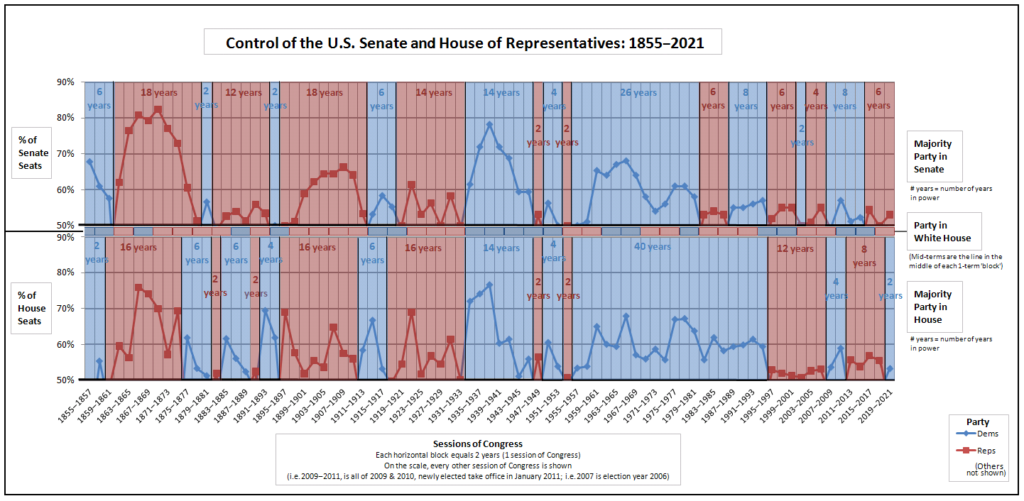
September 2020. Oxford Retirement Advisors Market Update – November Election Impact Upon the Financial Markets
As a financial advisor for over 30 years now, I am always on the lookout for half-truths that may hurt investors. With the 2020 US general election fast approaching, we’re seeing the same old half-truth resurfacing that says investors are better off under a Democratic president. I am disheartened each time I see this as stats can be twisted into nearly any point of view. As a fiduciary, I am obligated to act in the best interest of educating investors, with no intention of simply advancing opinions or half-truths.
the Presidential Puzzle vs the Persistent Presidential Dummy
A 2003 study by academics Pedro Santa-Clara and Rossen Valkanov claimed higher returns during Democratic administrations — a finding they dubbed “the presidential puzzle.” But the finding was challenged in a 2007 study titled “The Persistent Presidential Dummy” that found differences in stock market returns under Democrats and under Republicans were not meaningful. The 2003 study looked at stock market returns in excess of the 3-month US Treasury Bill. Consider the fact that looking at returns in excess of the 3-month T-Bill rate specifically neutralizes the Reagan years as 1979 – 1989 (the longest bull market without a losing year) since it was the period of the highest 3 month rates beyond compare going back to 1925. Conversely, doing this strengthens the results of the near flat decade of returns 1934 through 1943. A period in which the White House and both houses of Congress were controlled by Democrats.
The issue I have with this claim is two-fold: It misleads readers to believe a President’s party affiliation directly impacts the market results for investors without in any way referencing the majority party affiliation of the Congress during the respective term(s) ANDit doesn’t state the ramifications of a Presidential term. This is vitally important since the average economic cycle is 8 years from whence policy changes are implemented. It is lunacy to think that a change of President immediately or even quickly changes the flow of the world’s largest economy (e.g. turning an oil tanker does not happen like turning a jet-ski). This seems even more ridiculous in today’s globalized economy.
Ok – If you look at each Presidential term since 1933 (using same 70 years referenced in the 2003 study), the results look very different taking into account which party had majority in the House and Senateduring the Presidential terms.

Interestingly the three periods of the greatest performance of the S&P 500 Index, widely considered the bellwether index for US Stock markets, came when we had House of Representatives majority with a different party affiliation than the sitting President (1955 thru 1961, 1981 thru 1992, 1995 to 2000, 2010 to 2016 and recently 2018 to present). The exception to this rule? President Nixon resigning office in 1974. In examining the effects of Presidential terms, American Funds published “Should the Presidential Election Affect Your Investment Strategy?” that shows returns of the S&P 500 Index for 10 years after each US Presidential election 1936 – 2014 (wish they would update this piece). Results show the impact of party affiliation to the performance of the S&P 500 over time slightly favors Republicans.
Interestingly the single best 10-year period was after 1988 election of Pres. George H.W. Bush and the worst 10-year period was after the 2000 election of Pres. George W. Bush.
Author Cezary Podkul wrote “regardless of who controls the White House, fiscal decisions do not come close to what the Fed can do to whip up stock returns”. Professor Jeremy Siegel, a finance professor at the University of Pennsylvania’s Wharton School was quoted in the same article, “It depends much more on what the Fed does — MUCH more on what the Fed does.” Maybe this is why one of the most common mantras amongst Wall Street and financial professionals is “Don’t Fight the Fed.” The Fed has been and remains tremendously supportive to equities and Fed Chair Powell has repeatedly said “We’re not even thinking about raising rates.”
In summary, I believe it is reckless to put forth notions that stock market performance can be predicted by “false prophet” notions such as the conference of the winning Super Bowl team or the party affiliation of the US President alone.
So before you rush to make major changes to your portfolio in reaction to the elections, remember 4 simple investment rules:
- Emotions are to Investing like drinking is to driving – a terrible mix.
- Use fear to your advantage.
- As Ronald Coase said “If you torture the data long enough, it will confess to anything.”
- Don’t Fight the Fed.
Visit www.OxfordRA.com for additional commentary.
Please Note: When you link to any of the websites provided here, you are leaving this website. We make no representation as to the completeness or accuracy of information provided at these websites. Opinions expressed are that of the author and are not endorsed by the named broker/dealer or its affiliates. All information herein has been prepared solely for informational purposes, and it is not an offer to buy, sell, or a solicitation of an offer to buy or sell any security or instrument to participate in any particular trading strategy. The information in this article is not intended as tax or legal advice, and it may not be relied on for the purpose of avoiding any federal tax penalties. You are encouraged to see tax or legal advice from an independent professional advisor.
Certain statements contained within are forward-looking statements including, but not limited to, statements that are predictions of future events, trends, plans or objectives. Undue reliance should not be placed on such statements because, by their nature, they are subject to known and unknown risks and uncertainties.
The S&P 500 Index is a widely recognized index including a representative sample of 500 leading companies in leading sectors of the U.S. economy. The Nasdaq 100 Index is made up of the 100 largest non-financial companies traded on the Nasdaq stock exchange. These indexes are unmanaged. Investors cannot invest directly into indexes. Past performance does not guarantee future results.
Oxford Retirement Advisors is an independent firm. Securities and advisory services offered through Madison Avenue Securities, LLC (“MAS”), member FINRA/SIPC and a Registered Investment Advisor. Oxford Retirement Advisors and MAS are not affiliated entities.
